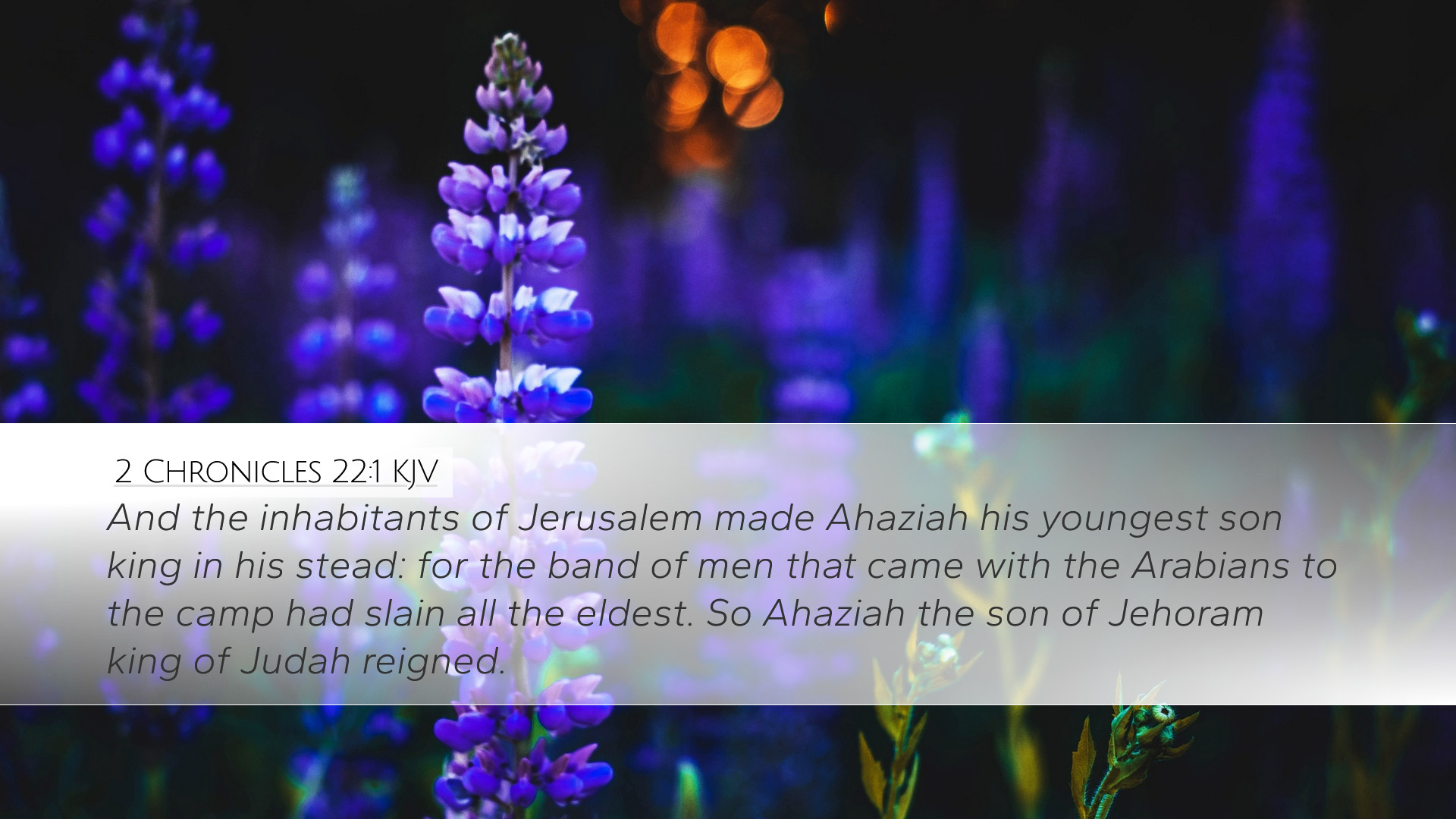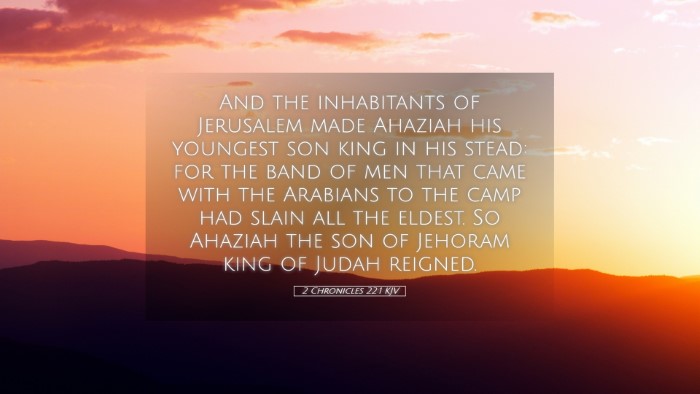Commentary on 2 Chronicles 22:1
Verse Context: "And the inhabitants of Jerusalem made Ahaziah his youngest son king in his stead: for the band of men that came with the Arabians to the camp had slain all the elder sons. So Ahaziah the son of Jehoram king of Judah reigned." - 2 Chronicles 22:1
Overview of the Reign of Ahaziah
Ahaziah's ascension to the throne represents a significant moment in the history of Judah, reflecting the complex interplay between divine sovereignty and human actions. With the preceding chaos resulting from the invasion by Arabian marauders, the kingdom found itself at a critical juncture, necessitating the rise of a new ruler.
Theological Significance
In understanding the reign of Ahaziah, we must consider the theological implications associated with kingship in Judah. Ahaziah, being the youngest son of Jehoram, serves as a noteworthy testament to God's providential care, allowing a lineage to persist even amid dire circumstances.
Insights from Matthew Henry
Succession Amidst Struggle: Matthew Henry emphasizes the unusual circumstances under which Ahaziah came to power. The brutal slaying of his elder brothers demonstrates not only the violent reality of political power in Judah but also serves as a stark warning against the consequences of sin and rebellion against God.
Divine Retribution: Henry notes that the wrath of God was evidently at work among the royal family, given the catastrophic downfall that befell Jehoram and his household, resulting in Ahaziah's reluctant kingship.
Insights from Albert Barnes
Youngest Son's Ascendancy: Albert Barnes remarks on the significance of the youngest son becoming king, highlighting how this could indicate a divine orchestration at play, as Ahaziah's kingship precedes significant events in Israel's history involving Elijah and the broader prophetic context.
Cultural Context: Barnes elaborates on the sociopolitical landscape that led to Ahaziah's elevation, contemplating the ramifications of his rule not only within Judah but also in relation to the northern kingdom of Israel, suggesting an eventual collision of interests.
Insights from Adam Clarke
Historical Implications: Adam Clarke provides a detailed historical analysis regarding the significance of Ahaziah in the broader narrative of Israel's kings. He notes that this period exemplifies a continuing cycle of sin and disobedience within the ruling houses of Judah.
Family Dynamics: Clarke reflects on how the tragedy that befell Jehoram and his lineage serves as an important lesson about the effects of sin within familial lines and emphasizes the necessity for leadership that aligns with God's intentions.
Application for Today
The account of Ahaziah prompts us to consider the implications of leadership that is not only focused on political power but also on moral integrity and a heart that seeks God. It serves as a reminder for contemporary leaders and believers alike to pursue righteousness, understanding that the consequences of our actions reverberate through history.
Moreover, Ahaziah’s story encourages us to recognize that God remains sovereign over nations and rulers despite human failures. In times of uncertainty, we can find solace in the belief that God's providence prevails, ensuring the continuity of His plan.
Conclusion
In summary, 2 Chronicles 22:1 serves as a vivid reminder of the complexities involved in leadership and governance within the context of divine oversight. Through the commentary of ancient scholars and theologians, we glean invaluable lessons about the nature of God’s justice, the significance of righteous leadership, and the overarching narrative of redemption that weaves through the biblical text.


